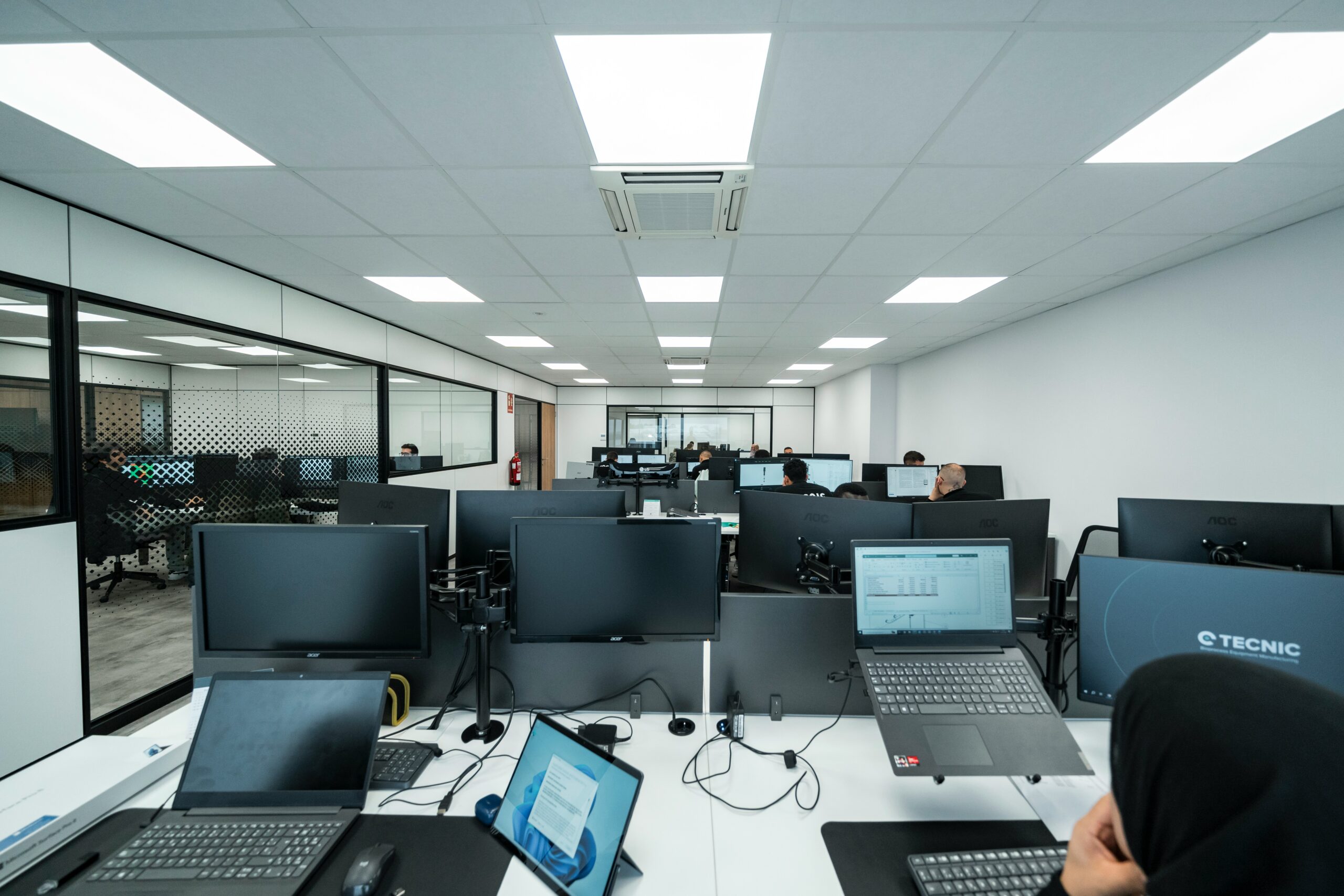Office kitchens and break areas are used by dozens, sometimes hundreds, of people every day. From microwaves and fridges to kettles and coffee machines, these shared appliances are constantly in action. The problem? They’re rarely cleaned properly.
Food spills, grease, coffee stains, and hidden bacteria quickly build up, creating hygiene issues that affect both staff and visitors. While a quick wipe-down might tackle surface dirt, it rarely addresses what’s lurking inside. Professional cleaning, on the other hand, goes deeper, keeping your workplace safe, hygienic, and professional.
In this guide, we’ll explore when your office appliances need help, what professional cleaning involves, how often you should book it, and why it’s worth the investment.
How Dirty Do Office Appliances Really Get?
You might be surprised at how quickly shared appliances accumulate grime. Microwaves see constant spills and splatters. Fridges collect forgotten food, mould, and odours. Coffee machines and kettles build up limescale and residue.
Because responsibility is often shared between staff, these appliances rarely get a proper clean. Over time, this leads to:
- Unpleasant smells in the break room.
- Higher risk of bacteria and cross-contamination.
- Reduced appliance performance and lifespan.
- A poor impression on clients or visitors who see your facilities.
The truth is, your appliances don’t need to be visibly filthy before they deserve attention. If there’s a lingering smell, cloudy microwave glass, mould in fridge seals, or limescale in the kettle, it’s already time for a professional service.
Can Staff Clean Office Appliances Themselves?
Yes, and many businesses rely on staff to do this. Wipes, sprays, and surface cleaners will handle day-to-day mess. But just like ovens at home, this rarely tackles hidden dirt or stubborn build-up.
Common issues include:
- Harsh chemicals leaving behind residue in food prep areas.
- Limescale and grease build-up that household sprays can’t shift.
- Difficult-to-reach areas being ignored, such as fridge seals, fan vents, or inside coffee machines.
That’s why many businesses now invest in professional cleaning as part of their workplace hygiene strategy. Professionals use safe, non-toxic, odour-free products that are effective but leave no residue behind, making them ideal for shared environments.
How Long Does Professional Appliance Cleaning Take?
The time depends on the number and type of appliances:
- Microwaves: 30–45 minutes each.
- Fridges: 1–2 hours depending on size.
- Coffee machines & kettles: usually under an hour.
- Full office kitchen package: 2–4 hours depending on how many items need deep cleaning.
The process is designed to cause minimal disruption. Many companies schedule it outside of office hours or during quieter periods so staff can return to a fresh, clean kitchen straight away.
The Benefits of Professional Office Appliance Cleaning
1. A Thorough Clean
Professionals dismantle and clean components most people would never think to touch, from fridge seals and drip trays to microwave vents. This extends the life of your appliances and ensures they run efficiently.
2. Improved Hygiene
Shared kitchens are hotspots for bacteria, mould, and odours. Professional cleaning removes germs that regular wipe-downs miss, helping reduce staff illness and improving overall workplace hygiene.
3. A Professional Image
A spotless office kitchen or break room creates a better environment for staff and leaves a positive impression on visitors, clients, and new recruits.
4. Safe and Eco-Friendly Methods
Unlike DIY products that often use harsh chemicals, professional services use safe, non-toxic solutions suitable for shared food areas. Staff can use appliances immediately without worrying about fumes or residues.
5. Early Maintenance Checks
Professionals can also spot issues like faulty seals, broken trays, or limescale damage during a clean. Catching these early helps avoid costly breakdowns and replacements.
How Often Should Office Appliances Be Professionally Cleaned?
It depends on usage and staff numbers. As a rule of thumb:
- Fridges: Every 3–6 months.
- Microwaves & ovens: Every 3–6 months.
- Coffee machines & kettles: Every 3 months for heavy use.
For high-traffic workplaces or shared office buildings, more frequent cleaning may be required. Many companies book quarterly cleans as part of their regular maintenance schedule.
How Much Does It Cost?
Costs vary depending on the size of your office and number of appliances. On average:
- Small microwave or kettle: from £20–£30.
- Fridge or oven: £50–£80.
- Full office kitchen package: £150–£300+.
When you compare this to the time staff spend trying to keep things clean, or the cost of replacing appliances early due to poor maintenance, professional cleaning often pays for itself.
Is It Worth It?
The answer is yes. Professional cleaning of office appliances goes beyond appearances. It keeps shared kitchens safe, prevents breakdowns, improves hygiene, and creates a better environment for both staff and clients.
For offices that want to stay professional, healthy, and welcoming, it’s a worthwhile investment.
If you’re looking for reliable office appliance cleaning, get in touch with Cleaning Solutions to keep your workplace spotless, safe, and stress-free.
Frequently Asked Questions
Does a dirty microwave or fridge really affect staff health?
Yes. Bacteria, mould, and odours can spread quickly in shared kitchens and may contribute to illness or allergies.
Can we still use the appliances straight away after cleaning?
Yes. Non-toxic products mean appliances are ready for immediate use.
Do cleaners bring their own equipment?
Yes. Professional teams provide everything needed.
Is it disruptive to the office?
Not at all, cleans can be scheduled for quiet times or after hours.

